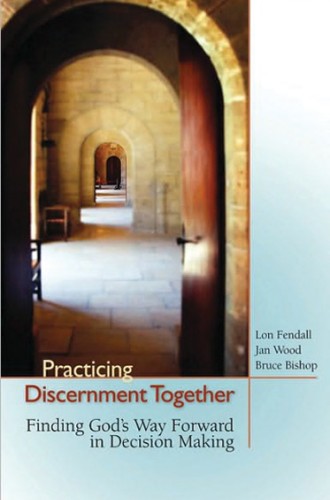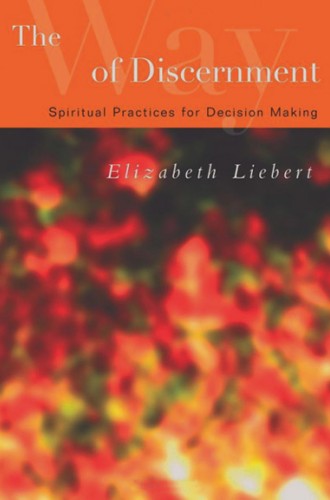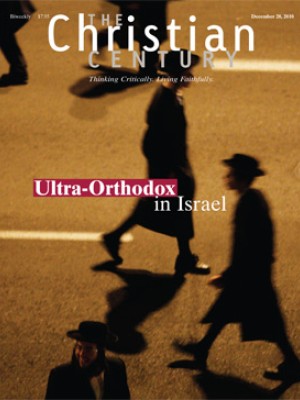Decide or discern
The prevalence of the language and practice of discernment owes much to the larger movement of what Diana Butler Bass has termed "retraditioning" as well as a renewed focus on spiritual practices. There are other reasons why discernment as a spiritual practice is receiving increased attention: people in congregations are increasingly impatient with church meetings conducted in ways that are indistinguishable from meetings in secular settings. They instinctively and rightly rebel against the kind of dualism that can creep into our thinking, dividing the life of the church into a spiritual side and a business side. They want God invited to the whole meeting, not just during the time of an opening prayer.
Robert's Rules of Order, some version of which are used by most congregations, were written in response to one man's frustration with a church meeting. In 1876 Henry Robert was chairing his first meeting of the trustees of First Baptist Church in New Bedford, Massachusetts. The meeting dragged and the trustees seemed unable to resolve their differences. On his way home he vowed that he would never chair another meeting until he had a set of governing rules and procedures to guide him. As a former officer in the army, he knew where to turn: parliamentary procedures. And that's how we got Robert's Rules.
Read our latest issue or browse back issues.
To be sure, following Robert's Rules can make meetings efficient. But it creates other problems. It ignores spiritual practices. By elevating the principle of "one person, one vote," the emphasis is squarely on the individual view and on the sum of individuals' votes. It creates winners and losers of votes. The process is slanted in favor of those who know the rules and can manipulate them.
Robert's Rules can have their own inefficiencies, which become evident when church bodies get tangled up in the rat's nest of procedural moves and countermoves. Is this any way to make decisions in a church?
I began to immerse myself in the ways of discernment 15 years ago as a result of something like desperation. My congregation was in the midst of considering whether it should become "Open and Affirming" (the designation in the United Church of Christ for congregations that have declared themselves open to and affirming of all people, regardless of sexual orientation). In taking up such a potentially controversial subject, I knew that the usual congregational processes would not suffice. We needed an alternative process that would help us navigate the rocky shoals that had the potential to sink us.
These two books provide just the kind of help I was looking for and did not find 15 years ago. Practicing Discernment Together is written by three Quakers and, although they make few explicit references to the Quaker tradition, they draw on it at every turn. For instance, they outline the role of the clerk, the Quaker term for a presiding officer, but in ways that could apply to anyone leading a process of discernment. When they describe a "listening meeting," a Quaker term for a meeting in which people "listen carefully to the members of the group and to the Holy Spirit speaking through them," what they say could apply to any group intentionally engaged in discernment. Although they commend silence, which plays such an important role in Quaker meetings, they do so in ways that people from traditions that are used to more talk can embrace: "In the context of the group discernment process, how do we know when we are to speak? The short answer is that we must speak when and only when God tells us to speak. . . . This may mean speaking much less frequently than we are accustomed to doing." That is advice that even my garrulous congregation can understand—and perhaps even follow.
The authors are careful to make the important distinction between discernment and consensus building. The goal of consensus building is to fashion agreement out of the diversity of perspectives in a group. Consensus building is a way for a group to figure out together what they think should be done. By contrast, through spiritual discernment we seek to discover what God is doing and what God would have us do in response. "A group discernment process is essentially a process of listening carefully to God."
The authors identify three channels through which we can listen for God's voice: "the Bible, our faith community, and our direct listening to God." They are most helpful in describing the role of community in listening for God. They insist that we listen to one another not just out of respect but because one can never know who the Holy Spirit will choose to speak through on any given occasion.
Although discernment is a spiritual process, it is not otherworldly. It is more incarnational. It happens on the ground with and through real people. So in key respects discernment resembles other forms of decision making: you need to get all the relevant facts, listen to those with expertise, seek the counsel of wise people, consider options, document decisions.
Practicing Discernment Together offers many concrete examples and practical suggestions, along with three extensive case studies. It regularly points the reader back to the faith affirmations that are foundational for the practice of discernment: God is active in the world. God has a will for us as individuals and as communities. Even though God's will is not always clear, often it can be discerned through the work of the Holy Spirit.
Elizabeth Liebert teaches at a Presbyterian seminary and describes herself as a "lifelong Roman Catholic religious sister," so it is not surprising that her approach to discernment reflects a variety of traditions. But she is most firmly rooted in the Roman Catholic traditions of discernment. In The Way of Discernment she draws heavily on the work of Ignatius of Loyola, the founder of the Jesuits, whose Spiritual Exercises (published in 1548) outlined an approach to discernment that is still in use today.
Although Liebert begins with a clear and nuanced introduction to the concept of discernment, including excellent summaries of its biblical and theological foundations, the heart of the book are her chapters devoted to seven "entry points" for discernment. Included are three that Ignatius stressed (imagination, feelings and reason) and a couple of others (memory and intuition). Then she guides the reader to some unexpected starting places for discernment. In one chapter, "Body Awareness," she makes the case, quite convincingly, that the body can discern the Holy Spirit in ways that are related to, but beyond, feelings and intuition. "The felt sense can feel meaningful, but not quite known. It might register, for example, as an ache, a twitch, a tension, or an even more vague lightness or heaviness." She concludes, "It's the lack of explicit language that makes reading the body a challenge."
Another chapter, "Nature's Perspective," asserts that being in nature and reflecting on the natural world can be an effective starting point for discernment. I am not aware of any other treatment of discernment that attempts to make this case. I found it rather vague, even sentimental. (But that may be my fault. A friend describes me as a "fan of the great indoors.")
Liebert's book is seasoned with helpful insights. For instance, she contends that it is more helpful to speak of the object of discernment as seeking to hear God's call, rather than to determine God's will. "I believe that 'call' is more reflective of the open, relational, and non-predetermined nature of God's relationship with us than the classical term 'will' often connotes." That is a distinction worth making. It is an insight that has the potential to free up the way we approach discernment. The book also is practical, with many suggested exercises outlined. I also appreciate the way in which Leibert describes discernment, not just as a means of decision making but also as a way of life, a way of being more receptive to the movement of God.
The Way of Discernment addresses discernment almost exclusively as it is practiced by individuals. Except for a few references to spiritual direction or the role of friends and other individuals in the process of discernment, the communal dimensions of discernment are almost completely absent. This omission seems particularly glaring after reading Practicing Discernment Together, in which community is approached as the natural, and even necessary, setting for discernment. Is it too easy to attribute these differences to the fact that one book was written by a Roman Catholic and
the other by three Quakers? Whether or not that is the case, the books complement rather than contradict one another. One might even suggest that they are best read together.
When my congregation embarked on our discernment about whether to become an Open and Affirming congregation, I happened to be doing a lot of reading about the early history of the Congregational tradition in anticipation of our congregation's bicentennial. There I encountered some of the spiritual riches of my own tradition that, in many respects, had been lost along the way.
The Congregational tradition can be traced back to England in the early 17th century. The very name "congregational" derives from the understanding that it is the congregation, informed by scripture and molded in prayer, that is best able to discern what Christ would have people do. The early Congregationalists met often and their meetings were seen as opportunities to encounter God in their midst. They were more like worship than legislative sessions. The community did not gather for decision making as much as for discernment. In other words, these forebears in the Congregational tradition approached decision making very much like the Quakers do—only they talked more. Or, as a colleague of mine puts it, Congregational meetings are Quaker meetings for extroverts.
Those are some of the understandings we decided to put into practice in our process. Eventually a vote was taken. It was not unanimous, but there was no great division either. Remarkably, no one left the church. People on both sides of the question talked about what a powerful spiritual experience the whole process had been. In fact, we were awed by it.
Spiritual discernment, rightly understood, is truly countercultural. It uses silence, it requires that we take our time, it redefines our precious sense of individualism. One other implication of spiritual discernment is a potential redistribution of power. If you must listen to each person with attentiveness because you never know who the Holy Spirit will choose to speak through at any given moment, then we must listen with as much care to a stranger as to a longstanding church member, we must listen as attentively to a young person as to a mature adult. Because you never know.
If we are able to approach decision making as a spiritual practice of discernment, we will not leave our church meetings enervated and discouraged, but rather energized and inspired. Rather than grumbling about our meetings, we will be offering testimony. Our meetings no longer will seem like just getting the business of the church done—they will feel like going about the business of being the church.








